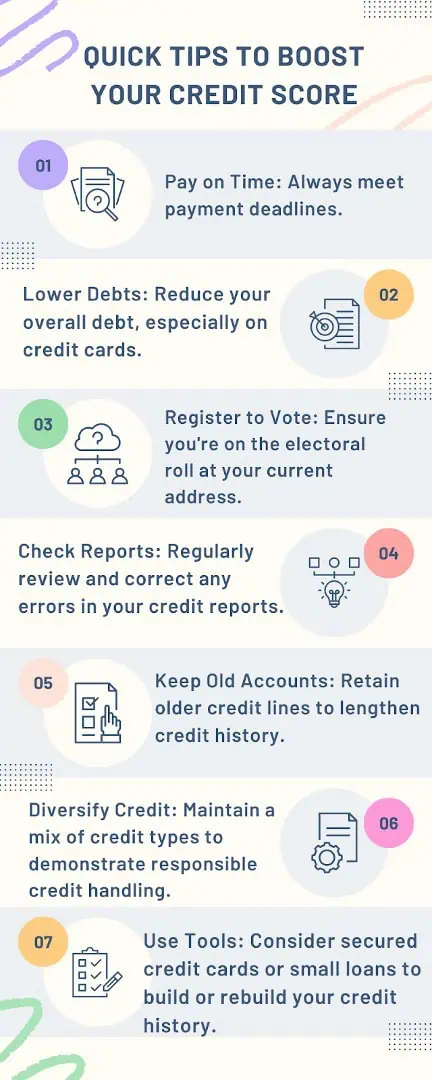Understanding personal loan terminology can seem daunting. However, being well-informed about the various concepts and terms can empower you to make more confident and financially savvy decisions.
This comprehensive guide demystifies personal loan jargon and equips you with the knowledge to navigate the world of personal loans confidently.
How Amortization Affects Your Monthly Payments
One of the most crucial concepts to grasp is amortization. It refers to the process of spreading out a loan’s payments over its lifetime.
Here’s how it works:
- Early Payments: In the initial stages of an amortized loan, a larger portion of each monthly payment goes towards interest rather than principal.
- Later Payments: As the loan matures, a more significant portion of each payment is dedicated to reducing the principal amount.
Understanding amortization is essential because it helps you plan your long-term financial commitments effectively. Recognizing the distribution of interest and principal payments over time enables you to make informed decisions about prepayments or refinancing options.
Before Applying for a Personal Loan
1. Assess Your Financial Situation
Before diving into the personal loan application process, take a thorough look at your finances. Evaluate your income, expenses, and existing debt obligations. Determine how much you need to borrow and whether you can afford the monthly payments.
Understanding your financial standing helps you choose an appropriate loan amount and repayment term that aligns with your budget.
2. Review Your Credit Report
Checking your credit report is crucial before applying for a personal loan. Look for any errors or discrepancies that could negatively impact your creditworthiness.
Addressing inaccuracies in your report can improve your chances of securing a favorable loan offer. Additionally, reviewing your credit history allows you to identify areas for improvement, such as paying off outstanding debts or reducing credit card balances.
Why Pre-Qualifying for a Personal Loan is Important
Pre-qualifying for a personal loan allows you to gauge your eligibility and potential interest rates without impacting your credit score. This preliminary step provides insight into the loan terms you might receive, helping you compare different lenders effectively.
By knowing your options upfront, when you pre-qualify for a personal loan, you can make informed decisions and avoid unnecessary hard inquiries that could affect your credit score.
Why Your Credit Score Matters When Applying for Personal Loans
Your credit score plays a pivotal role in securing favorable loan terms. Lenders use this three-digit number to assess your creditworthiness and determine the level of risk they’re taking by lending to you.

- Average Credit Score Requirements: The average FICO credit score required to qualify for a personal loan ranges between 610 and 640.
- Better Rates: To access lower interest rates and more advantageous loan terms, a score of 670 or above is generally necessary.
Key Terms Every Borrower Must Understand in Loan Agreements
When reviewing a loan agreement, it’s crucial to understand the key terms and clauses that could significantly impact your financial obligations. Here are some critical terms to be aware of:
- Annual Percentage Rate (APR): This represents the true cost of borrowing, including interest and any additional fees.
- Prepayment Penalty: Some lenders may charge a fee if you pay off your loan early, aiming to recoup lost interest.
- Late Payment Fees: These fees are charged when you miss a scheduled loan payment deadline.
- Loan Term: The length of time you have to repay the loan, typically ranging from 1 to 5 years for personal loans.
- Collateral: For secured loans, collateral refers to the asset (e.g., a car or home) that serves as security for the loan.
Thoroughly reviewing and understanding these terms can help you negotiate more favorable conditions and avoid unexpected costs or obligations down the line. Don’t hesitate to consult with a financial advisor or seek clarification from the lender if any part of the agreement is unclear.
Choosing Between Secured and Unsecured Loans: What You Need to Know
Personal loans can be classified as either secured or unsecured. Understanding the differences between these two types can help you make an informed decision based on your financial situation and needs.
Secured Loans:
- Require collateral, such as a vehicle, home, or other valuable asset.
- Generally offer lower interest rates and higher loan amounts.
- Pose a higher risk for borrowers, as failure to repay can result in the loss of the collateral.
Unsecured Loans:
- Do not require collateral, making them a more accessible option.
- Typically have higher interest rates and lower loan amounts compared to secured loans.
- Pose less risk for borrowers, as there is no collateral at stake.
When choosing between secured and unsecured loans, consider factors such as your credit score, the loan amount you need, and your ability to provide collateral. If you have a lower credit score or require a larger loan amount, a secured loan may be a better option, provided you’re comfortable with the associated risks.
Conversely, if you have a strong credit profile and only need a smaller loan amount, an unsecured loan may be more suitable and less risky.
What Are Prepayment Penalties and How Can You Avoid Them?
Prepayment penalties are fees charged by some lenders when you pay off your loan ahead of schedule. Prepayment penalties are designed to compensate the lender for the lost interest they would have earned if they had followed the original repayment schedule.
While prepayment penalties can vary, they are typically calculated as a percentage of the outstanding loan balance or a fixed fee. It’s essential to be aware of these fees, as they can significantly increase the overall cost of your loan.
To avoid or minimize prepayment penalties, consider the following strategies:
- Read the loan agreement carefully and negotiate to have the prepayment penalty clause removed or reduced.
- Choose a lender that does not charge prepayment penalties, as many reputable lenders have eliminated this practice.
- If you plan to pay off the loan early, factor in the potential prepayment penalty when calculating the total cost of the loan.
- Consider refinancing your loan with a lender that does not charge prepayment penalties if the savings outweigh the costs.
Understanding the implications of prepayment penalties and being proactive can help you make informed decisions and potentially save money in the long run.
Take the first step by researching reputable lenders, comparing interest rates, and evaluating loan terms based on the knowledge you’ve gained from this comprehensive guide. With the right information and a well-informed approach, you can confidently navigate the personal loan process and make financial decisions that align with your goals and aspirations.
Remember, knowledge is power, and by understanding the intricacies of personal loans, you’re empowering yourself to make choices that can positively impact your financial future.
FAQs
- What is APR?
APR stands for Annual Percentage Rate, indicating the total cost of borrowing, including interest and fees, expressed as a yearly percentage.
- What does “Collateral” mean in personal loans?
Collateral refers to an asset (like a car or property) used to secure the loan, reducing risk for the lender and potentially leading to lower interest rates for borrowers.
- How does the “Debt-to-Income Ratio” affect my loan application?
Debt-to-Income Ratio is the percentage of your monthly income that goes towards debt payments. Lenders use it to assess your ability to manage additional debt; lower ratios usually mean better loan terms.
Article and permission to publish here provided by Daniel M. Originally written for Supply Chain Game Changer and published on June 17, 2024.
All images provided by Daniel M.

